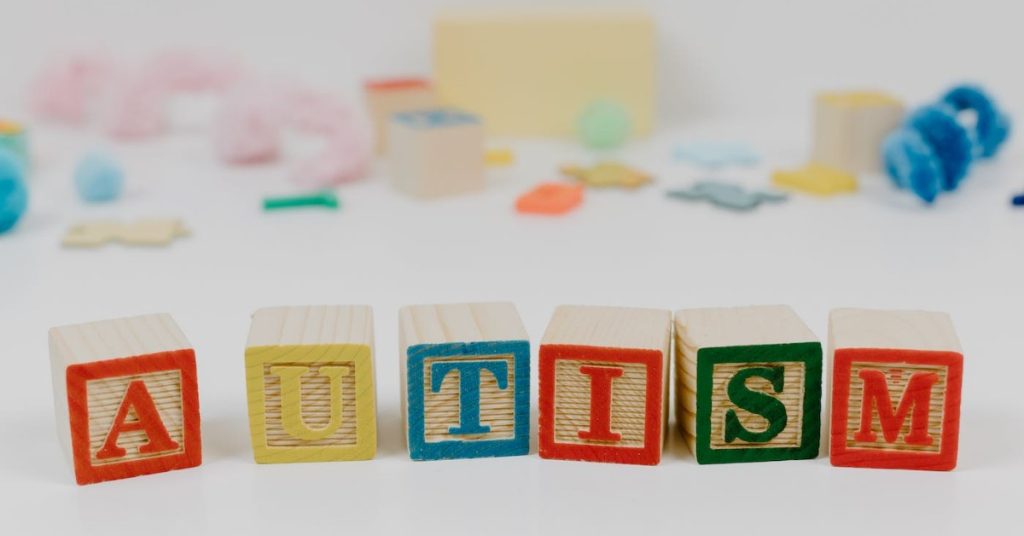
- Autism is a developmental disability.
- Autism is not a disease.
- Symptoms of autism vary a lot from child to child.
- The road to diagnosis is long and complicated.
- There’s disagreement about the cause: genetic or environmental.
- Research shows that boys are more likely than girls to be diagnosed with autism.
- Early intervention can help a lot, but there isn’t one single “cure.”
- IQ and language ability during early childhood can offer clues to future outcomes.
- Conclusion
Autism is a developmental disability that affects children’s thinking, acting, and communication. It has no cure, but there are many ways to help your child with autism reach their full potential. If you suspect your child may have autism, it’s important to get them evaluated by a qualified professional, so they can learn more about what’s happening in their brain and how they can improve it over time.
Autism is a developmental disability.
Autism is a developmental disability. It is not a disease but rather a group of complex brain function disorders that affect how someone uses language and communicates with others.
Autism occurs when there are problems in how nerve cells in the brain develop during pregnancy or infancy. This may lead to delays in understanding other people’s thoughts and feelings and difficulties communicating with them verbally or nonverbally (for example, through gestures).
Autism is not a disease.
Autism is not a disease. It’s also not just any other kind of disorder; it’s an unpredictable constellation of symptoms that affect how people think, feel and act.
It’s important to remember that autism has nothing to do with bad parenting—it’s not contagious or life- sentence-worthy. On the contrary, parents who love their children and care for them well are more likely to see improvements in their kids’ behaviour as time progresses (including you).
Symptoms of autism vary a lot from child to child.
Symptoms of autism vary a lot from child to child but can include:
- No speech or language skills (also called “autism without delay”)
- Difficulty understanding other people’s feelings and emotions, especially if they are negative or sad
- Difficulty reading social cues from others (for example, adults may speak louder than children)
Children with autism may also have problems with language development—they may use grammar incorrectly or not understand how sentences work together. In addition, they might not remember their name when introduced to someone new; instead of saying “Hi” when greeting someone new at school, these children will say “Hi-four.”
The road to diagnosis is long and complicated.
The most important thing to remember when it comes to assessing your child’s development is that there is no single sign that indicates a child has autism. Instead, there are different types of autism, and each one affects children in different ways.
Some signs you should look for include the following:
- A child who doesn’t make eye contact with you or other people around them. This can be difficult for parents because children with autism often don’t understand social cues like eye contact or facial expressions—they may not even realize they’re being looked at! You’ll have to watch closely if this often happens enough so that you know what’s going on in their head during these moments (for example: “He looks away,” vs “I’m looking at him”).
- A lack of responsiveness when called by name; speaking only when spoken to; not responding when called out loud by name but smiling happily instead; refusing food offered by adults in exchange for playtime (or vice versa); seeming happier if left alone than if engaged socially.
Other conditions, like Down syndrome, fragile X syndrome and cerebral palsy, can also cause developmental delays. A thorough medical examination is needed before an autism diagnosis can be made. The doctor will ask about the child’s development and behaviour, among other things.
Because the symptoms are non-specific, it’s easy for parents to miss signs that something is wrong until their child starts missing developmental milestones like talking, babbling, making eye contact and playing with toys in a meaningful way.
Because of this, some children may not show any signs of autism until later in life.
Once your child has been diagnosed with autism, the road to recovery can be long and complicated. The reason for this is that there are many reasons why it takes so long to get a diagnosis. Some people have to go through multiple doctors before finding one that will listen; others have their symptoms misdiagnosed or ignored by their physicians.
The good news? This means your child is not alone! But, of course, you’re not alone in your struggle with autism or any other mental health condition—and neither is anyone else around you who has also experienced similar hardships.
There’s disagreement about the cause: genetic or environmental.
In general, it’s thought that a combination of genetics and environmental factors, such as chemicals or toxins in food or water, may cause autism. For example, scientists have found that children who live near coal-fired power plants are more likely to develop autism than those whose families don’t live close by. Similarly, studies show that mercury levels in fish can increase the risk of developing autism. In addition to these environmental exposures (for example, air pollution), other factors may also play a role in causing autism. These factors include:
- Infections like mumps or flu viruses.
- Birth complications such as preterm birth.
- Family history-related issues such as heart disease or diabetes among parents.
- Exposure during pregnancy through medications used during labour which pass through breast milk into the baby’s body.
Research shows that boys are more likely than girls to be diagnosed with autism.
The prevalence of autism spectrum disorders (ASDs) has increased over the past two decades and is now higher in boys than in girls. But why?
Researchers have suggested gender differences in how ASDs develop, with girls more likely to be diagnosed with milder autism. In addition, the most common symptoms of ASD may only present themselves after puberty for girls or during childhood for boys. This suggests that it’s not just genetics but also environmental factors that play into who gets an ASD diagnosis at any given time. So if you want your child to grow up healthy and happy—and you should—you must ensure they get all their vaccinations as early as possible!
Early intervention can help a lot, but there isn’t one single “cure.”
Early intervention is key to helping your child develop the skills and behaviours to help him thrive. Early intervention can be as simple as talking to your child’s daycare provider about how you’re feeling, asking for help with behaviour management strategies, or seeking out support groups for families of children with autism.
Parents need to understand that there isn’t one “cure” for autism—and even if one existed (which there isn’t), it would only provide benefits if everyone else in society paid attention and did their part too!
Whether or not symptoms are severe affects the amount of support children need. For example, some children with autism can live independently, while others need lifelong support. The severity of symptoms can vary from person to person as well. The more severe the autism symptoms are, the more help a child will need to function normally at home and school (Baron-Cohen et al., 2001).
IQ and language ability during early childhood can offer clues to future outcomes.
One of the biggest challenges you face as a parent is predicting how severe a child’s autism will be. It’s difficult because there are no clear-cut answers.
However, one thing that may give some clues would be their IQ and language ability during early childhood. IQ tests are designed to measure intelligence—a person’s ability to think and reason—but they can also indicate future outcomes regarding communication skills (language) or socialization skills (social).
If your child has an above-average score on these measurements at age 3 or 4, this may mean that he has greater potential for learning than other children with autism do. However, it doesn’t necessarily mean he’ll never require therapy later on down the line!
Conclusion
Autism is a developmental disability but also a spectrum disorder that can affect people in unique ways. Therefore, it’s important to know that there are no quick fixes and no one-size-fits-all approach to autism treatment. The best way to get started is by meeting with your child’s doctor, who can give you an idea of what kind of support may be available for your specific situation.





















Add Comment